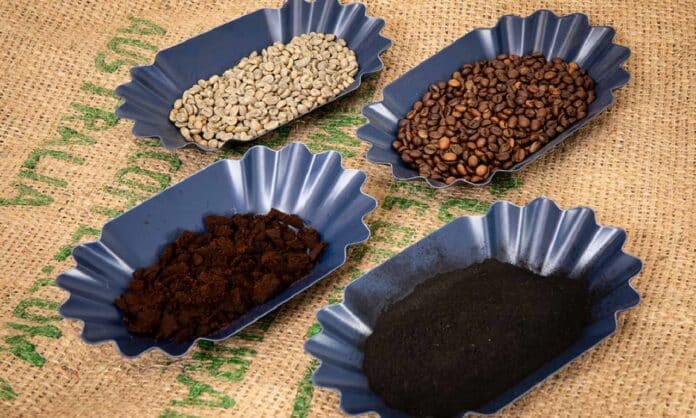The disposal of organic waste poses a major environmental challenge because it produces methane gas, which has a global warming potential of 21 times that of CO2. Other greenhouse gases (GHGs) emitted during decomposition include carbon dioxide, nitrous oxide, and ammonia. Spent coffee grounds (SCG) are one of the organic wastes that make up a significant proportion of total organic waste disposed of in landfills.
Australia produces 75 million kg of waste ground coffee annually, most of which is dumped in landfills. Each year, 10 billion kilograms of spent coffee is produced worldwide.
Researchers have developed a method to produce stronger concrete using roasted, used coffee grounds, giving the drink ingredient a “double shot” at life and reducing waste going to landfills.
Roychand, a Postdoctoral Research Fellow at RMIT University, said, “The inspiration for our work was to find an innovative way of using the large amounts of coffee waste in construction projects rather than going to landfills – to give the coffee a ‘double shot’ at life.”
He said, “Several councils battling with the disposal of organic waste have shown interest in our work. They have already engaged us for their upcoming infrastructure projects incorporating pyrolyzed forms of different organic wastes.”
The team created a method to convert waste coffee grounds into biochar using a low-energy process without oxygen at 350 degrees Celsius to make concrete 30% stronger.
Kilmartin-Lynch from the School of Engineering said, “Inspiration for my research, from an Indigenous perspective, involves Caring for Country, ensuring there’s a sustainable life cycle for all materials and avoiding things going into landfill to minimize the impact on the environment.”
The concrete industry has the potential to contribute significantly to increasing the recycling of organic waste, such as used coffee. The research team has vast expertise in generating highly optimized biochars for concrete applications from various organic wastes, including wood biochar, food waste biochar, agricultural waste biochar, and municipal solid waste biochar.
The researchers are eager to cooperate with different companies to further their study and want to create realistic implementation plans and field testing.
The research is still in its early stages. However, these exciting findings provide an innovative technique to significantly reduce the quantity of organic waste that goes to landfills. The concrete industry has the potential to substantially contribute to improving organic waste recycling, such as spent coffee.
The researchers aim to develop practical implementation techniques and conduct field testing. The team is eager to engage with various companies to develop their research.
The research was funded by RMIT University’s Strategic Capability Deployment Fund in collaboration with Arup Australia P/L and Earth Systems P/L.
Journal Reference:
- Rajeev Roychand, Guomin Zhang, et al. Transforming spent coffee grounds into a valuable resource for enhancing concrete strength. Journal of Cleaner Production. DOI: 10.1016/j.jclepro.2023.138205
